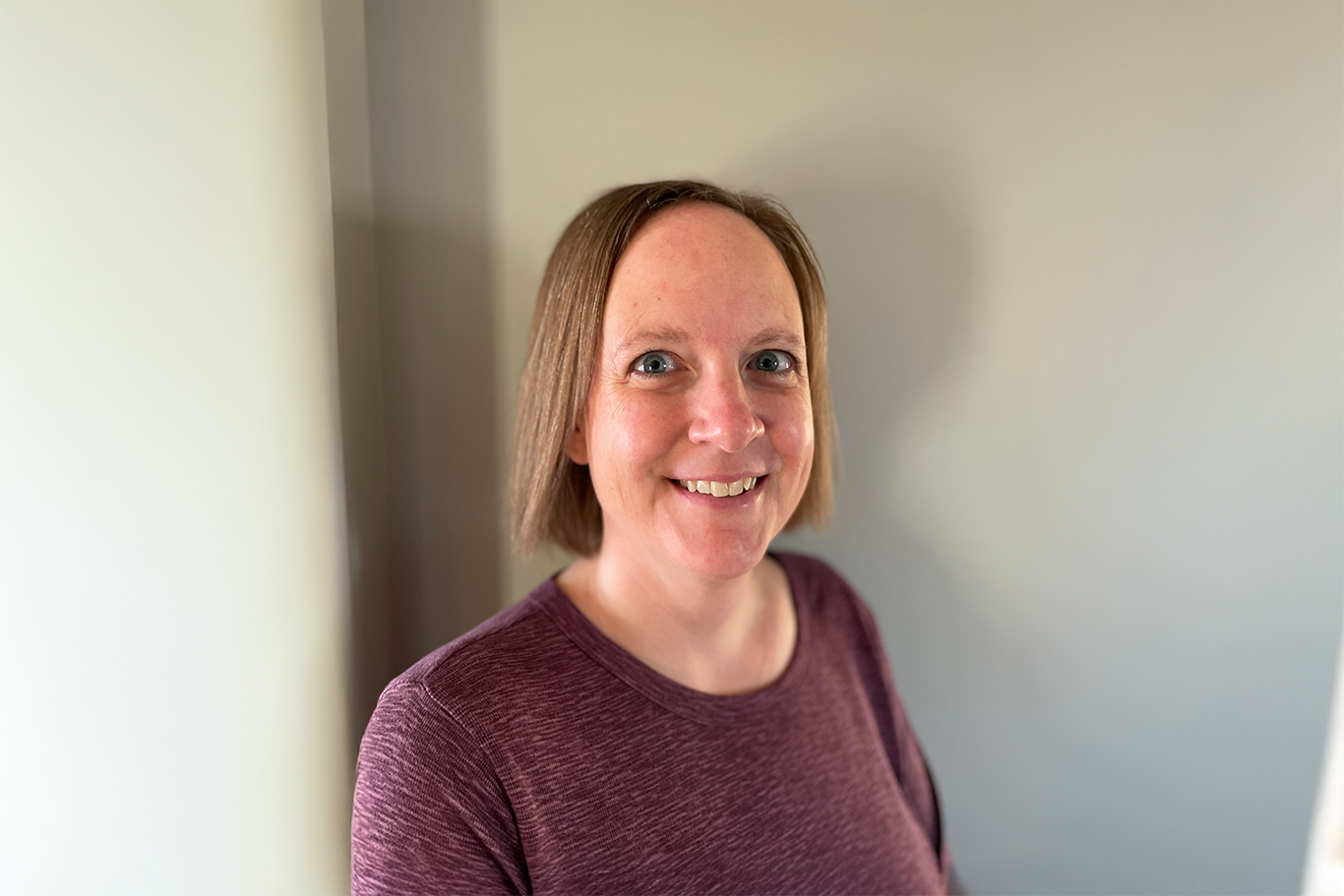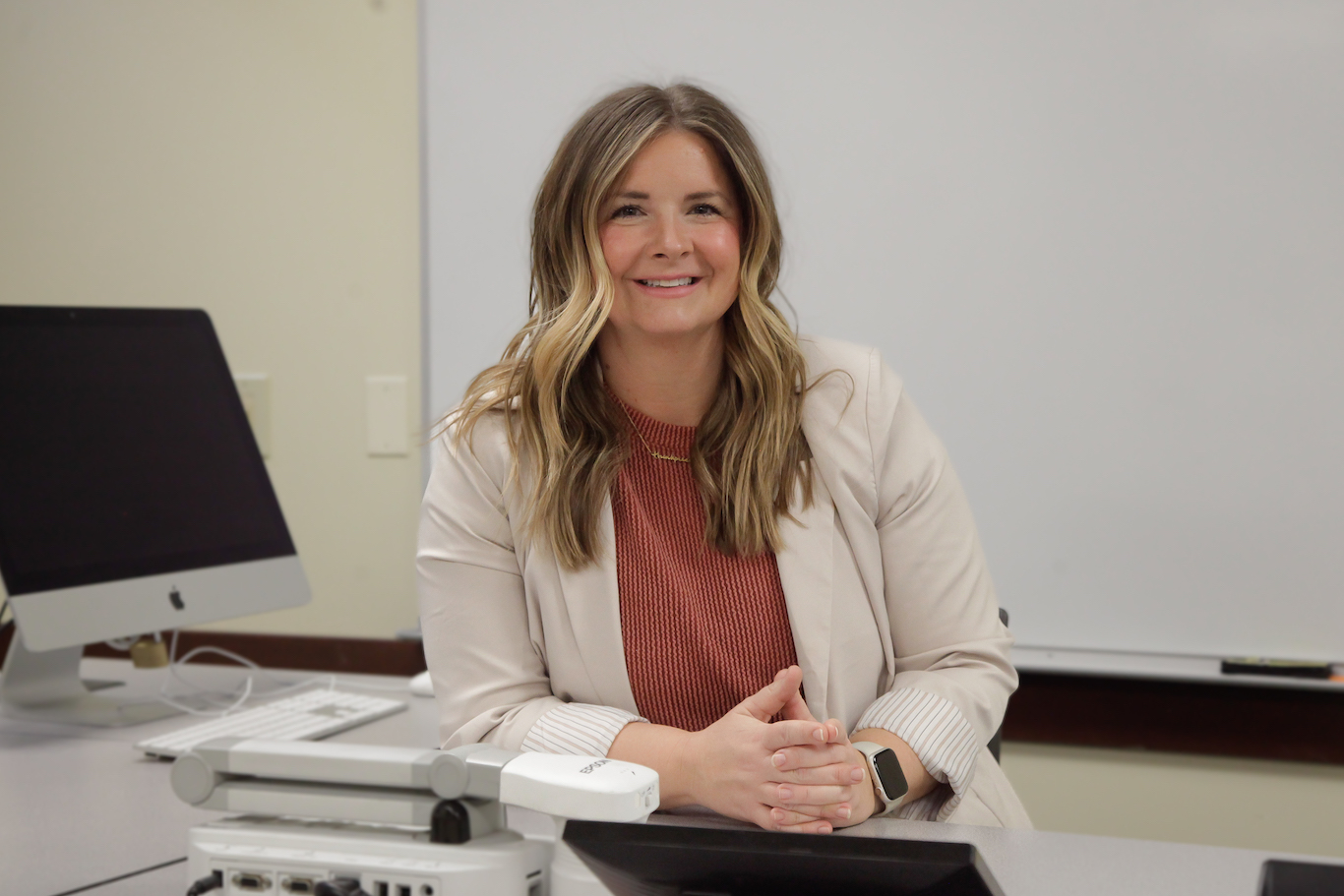Three Women Team Up to Transform MSUM’s Athletic Training Program
Women ignite powerful change.
That’s why, when three women at Minnesota State University Moorhead (MSUM) joined forces to overhaul the university’s athletic training program, it evolved into an exciting new opportunity for students.
Licensed Athletic Trainers (LAT) Andrea Scott, M.S. and Ronda Peterson, M.S. are Certified Athletic Trainers (ATC) providing medical care – including evaluation, treatment and rehabilitation – to student-athletes participating in Dragon Athletics. Dawn Hammerschmidt, Ph.D., LAT, ATC is a professor in the Health and Human Performance department at MSUM.
These three women have a close-knit, collaborative approach to athletic training, both from an academic and athletic front. They’re proud to sport more than 100 years of athletic training experience combined – with nearly all of it taking place together, at MSUM. This impressive depth of expertise in their field, combined with their access to Dragon Athletics, is unique to a Northern Sun Intercollegiate Conference (NSIC) Division II level organization – and this brings substantial benefits to students.
MSUM is proud of its robust history, educating exceptionally prepared alumni to serve as athletic trainers across the country. Over the course of Scott, Peterson and Hammerschmidt’s tenure, thousands of students have received their instruction, training and support and from other distinguished professionals such as athletic director Chad Markuson and assistant athletic trainer Keith Wiedrich.
MSUM Launches New Master of Science in Athletic Training
Starting next summer, students can embark on a new Master of Science in Athletic Training degree at the university. The degree is part of a five-year program in which participants earn both an undergraduate degree in exercise science and a graduate degree in athletic training.
This program was designed to ensure students accomplish the preferred entry-level requirement of the National Athletic Trainers’ Association.
“The M.S. in athletic training program has a collaborative, interdisciplinary curriculum with courses in athletic training, healthcare administration and nursing. Students will tailor their clinical experiences to align with their career goals,” says Hammerschmidt.
The professionals believe that one of the greatest strengths of this new program is the rare collaboration between academics and athletics. “We can rely on MSUM Athletics as being a phenomenal clinical site for our students to get that experiential learning,” Hammerschmidt says.
MSUM has established partnerships with local high schools and clubs, healthcare systems and other community partners to ensure students have access to a diverse range of clinical opportunities. “MSUM athletic training has always prided ourselves on giving students hands-on experience right away, as soon as they are able to do it,” says Scott.
With this, the university has a distinctive faculty-to-staff-to-student relationship. With close to 5,000 students, MSUM is large enough to provide varied experiences but small enough for students to stand out – and ensure they receive exactly what they need from their education to prepare them for the workforce.
Establishing the Foundation for a Rewarding Career
These professionals are proud to say they are “living the dream!”
Peterson appreciates how her work allows her to participate in competition and focus on healthy living. “There is nothing like the energy you receive on game day,” she says. “That’s when the students’ hard work is recognized, especially as they support athletes in overcoming injuries.”
According to the U.S. Bureau of Labor Statistics, the employment of athletic trainers is projected to grow 17 percent from 2021 to 2031, faster than the average for all occupations. This means graduates enter a robust job market which boasts a median annual salary of $48,420. With a nearly 50-50 ratio of men to women in the field, the women are proud to confirm that it’s a welcoming space for women.
The desire to explore solutions to challenging situations is critical to the success of athletic trainers. “A key trait of athletic trainers is, when there is a problem, we figure it out,” says Scott.
From there, the opportunities are abundant. “Athletic trainers work in many areas in addition to the traditional collegiate, professional and high school settings, such as military, industrial, clinical and performing arts settings,” Peterson says.
Athletic training is a dynamic, demanding career that leads many professionals to become invigorated, inspired and enthusiastic about their work.
Learn more about the M.S. in Athletic Training.
Make Sure Your Story Is Heard
Let us know how your life has been changed by being a Dragon: tell us your MSU Moorhead story today!
Send Us Your Story


